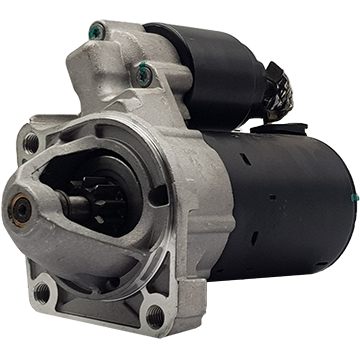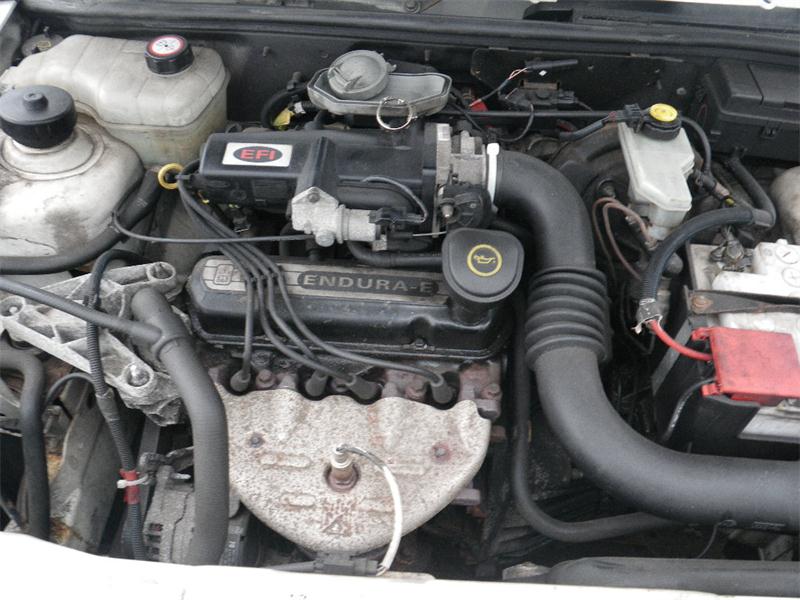Common Issues with the Ford Fiesta Engine and How to Fix Them
Common Issues with the Ford Fiesta Engine and How to Fix Them
Blog Article
The Future of Engines: Developments Driving Lasting Power Solutions
As the vehicle sector browses the necessary change towards sustainability, the future of engines is increasingly defined by groundbreaking advancements. Electric engine advancements, together with appealing growths in hydrogen gas cells and biofuels, are improving the landscape of power services.
Electric Engine Developments
The development of electrical engine advancements signifies a critical shift in the aerospace and vehicle sectors, driven by the immediate need for lasting options to fossil gas. This shift is defined by substantial advancements in battery technology, power electronics, and electric motor design, which collectively enhance the efficiency and performance of electric engines.
Current technologies have resulted in the development of lighter, much more energy-dense batteries, such as lithium-silicon and solid-state batteries, which guarantee longer arrays and much shorter billing times. In addition, renovations in electrical motor efficiency, such as using irreversible magnets and progressed cooling systems, make it possible for electrical engines to operate efficiently under differing conditions. These improvements not only boost vehicle efficiency however additionally add to a decrease in general power intake.
Additionally, the integration of innovative software application formulas has maximized energy management in electrical automobiles, enabling for regenerative stopping and anticipating charging strategies. As suppliers progressively accept electric propulsion, the aerospace and automobile industries are witnessing a standard change in the direction of greener modern technologies. This evolution not only fulfills regulatory needs but likewise straightens with consumer choices for eco-friendly transport options, solidifying electrical engines as a foundation of future lasting wheelchair.
Innovations in Biofuels
As the aerospace and automobile industries significantly prioritize lasting energy sources, advancements in biofuels become a complementary remedy to electrical engines. Biofuels, stemmed from natural materials such as plants, waste, and algae, present a cutting-edge avenue for lowering greenhouse gas discharges and reliance on nonrenewable fuel sources.
Current research study has concentrated on boosting the performance and sustainability of biofuel production. Second-generation biofuels utilize non-food feedstocks, lessening competitors with food supply and reducing environmental effect. Moreover, innovations in synthetic biology have allowed the engineering of microorganisms to generate biofuels better, resulting in greater returns and lower production expenses.
In addition, the development of drop-in biofuels permits smooth integration right into existing framework, allowing a smoother change for sectors typically depending on nonrenewable fuel sources. ford fiesta engine. These fuels can be used in current engines without modifications, facilitating their adoption across various industries
Investments in biofuel technology, along with encouraging plans, are important to drive technology and scalability. As the worldwide neighborhood looks for to deal with environment modification, biofuels provide a pragmatic, instant service that straightens with the overarching objective of sustainability in transportation and air travel.
Hydrogen Gas Cell Modern Technology
An expanding variety of business and researchers are exploring hydrogen fuel cell modern technology as a feasible choice to standard power resources in transportation and power systems. This technology transforms chemical power from hydrogen into electricity via an electrochemical reaction, with water as the only byproduct, making it an eco pleasant choice.
The core of hydrogen fuel cells is the gas cell pile, where hydrogen molecules are divided right into protons and electrons. The flow of electrons generates power, while protons relocate via a membrane to integrate with oxygen from the air, creating water. This process results in high effectiveness and reduced emissions, placing hydrogen fuel cells as a crucial gamer in the change to sustainable power.
Substantial advancements have actually been made in boosting the sturdiness and performance of fuel cells, along with lowering expenses via ingenious manufacturing strategies. Additionally, the growth of hydrogen production techniques, such as electrolysis powered by sustainable power sources, boosts the sustainability of the general system. As facilities for hydrogen refueling expands and production techniques end up being extra effective, hydrogen gas cell technology holds terrific pledge for decarbonizing different industries, including heavy-duty transportation and stationary power generation.
Crossbreed Systems and Their Impact
Crossbreed systems stand for a substantial development in lasting engine technology, merging conventional internal combustion engines with electric propulsion to enhance power efficiency and minimize discharges (ford fiesta engine). This twin approach permits cars to make use of both power resources, enabling better flexibility in power usage and reducing reliance on nonrenewable fuel sources

In addition to environmental benefits, hybrid systems use customers a viable shift towards fully electrical lorries. They reduce variety stress and anxiety by incorporating the comfort of gas with the benefits of electrical propulsion, making them an eye-catching option for a wider target market.
The Function of AI in Engine Design
Leveraging sophisticated algorithms and artificial intelligence strategies, the vehicle industry is progressively incorporating artificial intelligence (AI) into engine design processes. AI boosts the efficiency and performance of design by examining large datasets to identify optimal configurations and efficiency specifications. This ability enables engineers to mimic different operating conditions and anticipate engine behavior under multiple circumstances, dramatically minimizing the time and cost related to standard prototyping methods.
Additionally, AI assists in the advancement of sophisticated click for more materials and burning procedures tailored Homepage for sustainability. By optimizing fuel performance and reducing emissions, AI-driven layouts align with global campaigns targeted at lowering the carbon footprint of automobile engines. Artificial intelligence algorithms can also anticipate upkeep requirements, leading to boosted integrity and durability of engine components.
In Addition, AI contributes in the integration of electrification innovations, such as hybrid systems, where it can maximize battery monitoring and energy recovery procedures. As the industry moves in the direction of more lasting power remedies, the function of AI in engine layout ends up being significantly crucial, driving technology and improving the efficiency of future engines. Inevitably, the partnership between AI and engine layout heralds a brand-new era of smarter, cleaner, and more effective vehicle modern technologies.

Final Thought
To conclude, the future of engines is being shaped by a convergence of ingenious technologies that focus on sustainability. Electric engine improvements, biofuel advancements, hydrogen fuel cells, and crossbreed systems collectively add to a considerable reduction in emissions and environmental influence. Furthermore, the assimilation of expert system in engine style improves efficiency and efficiency. These transformative options emphasize a commitment to developing a cleaner, a lot more sustainable automotive landscape, ultimately benefiting both basics society and the setting.
Electric engine improvements, along with appealing developments in hydrogen fuel cells and biofuels, are reshaping the landscape of power options. Furthermore, improvements in electric motor efficiency, such as the use of irreversible magnets and advanced cooling systems, enable electrical engines to operate effectively under differing conditions. By maximizing fuel effectiveness and reducing exhausts, AI-driven styles line up with global campaigns intended at decreasing the carbon footprint of automobile engines. As the market moves in the direction of even more lasting power services, the role of AI in engine layout comes to be significantly vital, driving technology and enhancing the performance of future engines. Electric engine improvements, biofuel advancements, hydrogen fuel cells, and hybrid systems jointly add to a considerable decrease in discharges and ecological impact.
Report this page